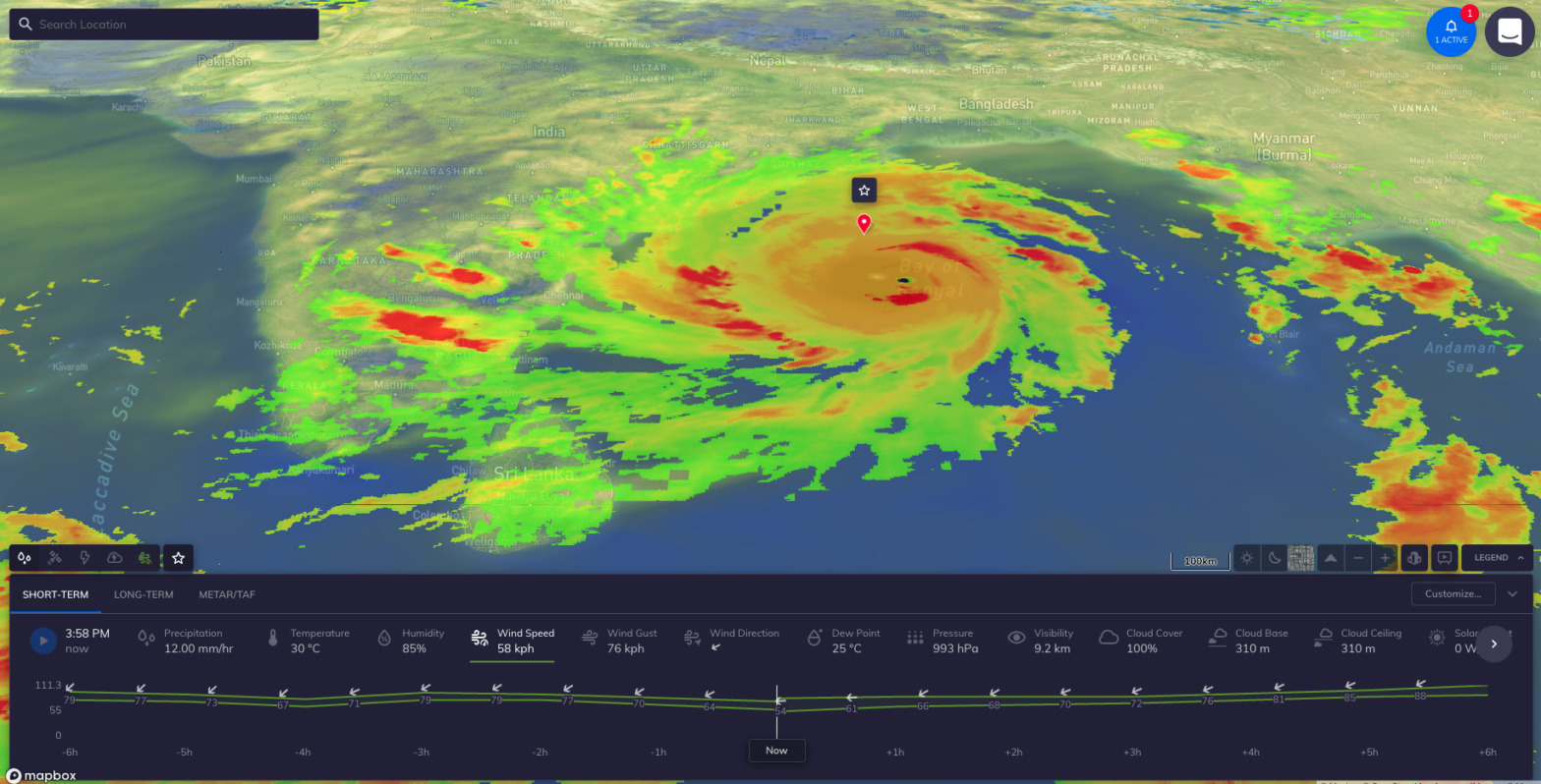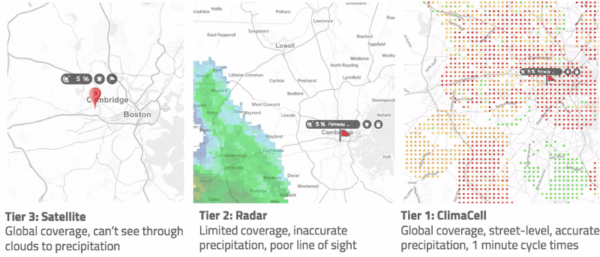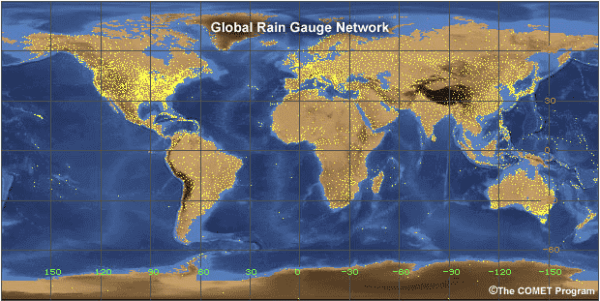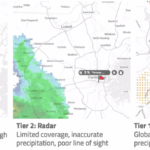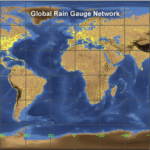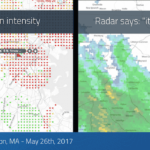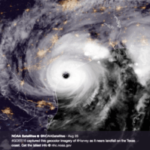When you think of weather software, you’re likely imagining the technology that enables your local meteorologist to put together next week’s forecast.
And while that is one type of commonly used weather software, there are many others that fulfill different weather-related needs. Specifically, there is a new type of weather software aimed at business leaders everywhere: weather intelligence.
Weather intelligence is much more than a forecast — it’s the forecast put in context for your business.
What does that mean exactly?
For example, if there’s an incoming wind storm, weather intelligence can alert an electric company to prepare for outages in that area. If there’s potential for flooding from heavy rain, alerts go out to any on-demand and delivery providers to adjust expected ETAs and travel times.
In other words, the best weather software allows business leaders to forget about the forecast entirely and focus on what matters most: the impact on the business.
What is Weather Software for Business?
While meteorologists are incredibly skilled scientists, the level of detail that matters to a meteorologist is likely not relevant to most business leaders. Meteorologists are looking at cloud layers and global weather trends in order to understand the incoming weather patterns. You likely don’t care why the forecast is correct; you just care that it’s accurate, period.
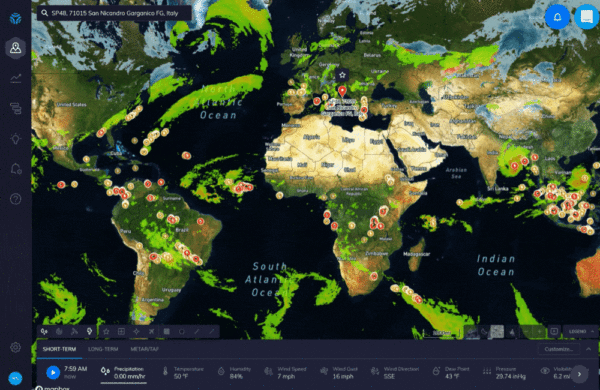
When a business is looking for weather software, accuracy matters, but it’s really not the core value that you need. What you need is a platform that can offer actionable insights into the weather today, tomorrow, and in the coming weeks. You need someone to help you answer the question: “How does the forecast directly impact my business?”
Better Prepare for the Weather
As a business leader, you likely already know the exact type of weather that has the biggest impact on your bottom line. But there may be a few data points you’re missing when you lay out protocols and procedures for adapting to the weather. Here are a few examples of how weather impacts specific industries:
In the shipping and trucking industry, weather can slow ETAs and waste significant money:
- Trucking companies lose 32 billion vehicle hours due to weather-related congestion each year
- Weather-related delays cost trucking companies $2.2 billion to $3.5 billion dollars annually
- Weather is responsible for roughly 1 out of 4 trucking delays
In the agriculture industry, weather directly hits the bottom line:
- Drought and heat damage cause an estimated $17 billion worth of crop loss in the US each year
- If crops are hit with an early freeze in the fall, yield losses can cost US farmers up to $28.6 billion
- In 2019 alone, flooding prevented farmers from planting more than 19.4 million acres of cropland
In the renewable energy space, weather can damage equipment and reduce efficiency:
- On a partly cloudy day, production can drop by 10% to 25%, costing solar operators more than $5.25 billion a year.
- For each degree above 77 degrees, PV panels become 1% less efficient.
- Hail or lightning can damage panels, which cost an average of $41,000 to replace.
These numbers are somewhat staggering, and shows the importance for business leaders of paying closer attention to the weather. But instead of simply reacting to the weather when it hits your pocket, you can get ahead of the forecast with weather intelligence.
Why Tomorrow.io?
Tomorrow.io is a new type of weather software: the Predictive Weather Intelligence Platform. The software can directly alert organizations as to the business impact of the weather and the actions to take to prepare in advance.
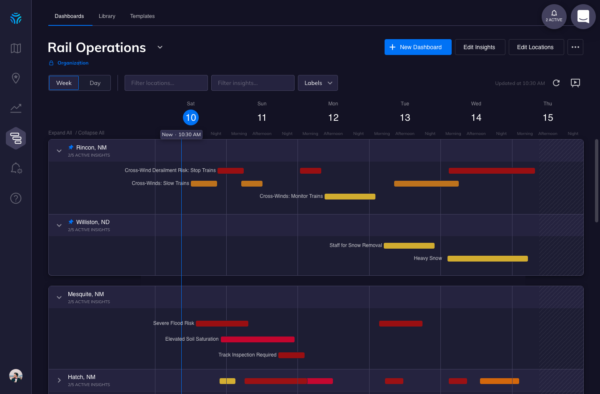
The Tomorrow.io Insights Dashboard takes all of your internal weather-related action plans or procedures and visually displays them across a 4+ day timeline. Instead of scrambling to adapt to the weather, you’ll have time to prepare and adapt, all while following specific guidelines. Even better, you can turn those insights into actions with alerts — going out via email or SMS — to the right teams that need to know.
If you’re an energy company facing an incoming storm, you can prepare for outages in advance and respond more quickly. If you’re a drone company, you can make go-no-go decisions on when to fly expensive drones. Knowing the weather’s impact shifts your organization from reactive to proactive, helping teams operate more efficiently by avoiding disruptions caused by weather.
No matter your business, there are weather insights that can improve your operations and impact your revenue. That is the true value of weather intelligence.
